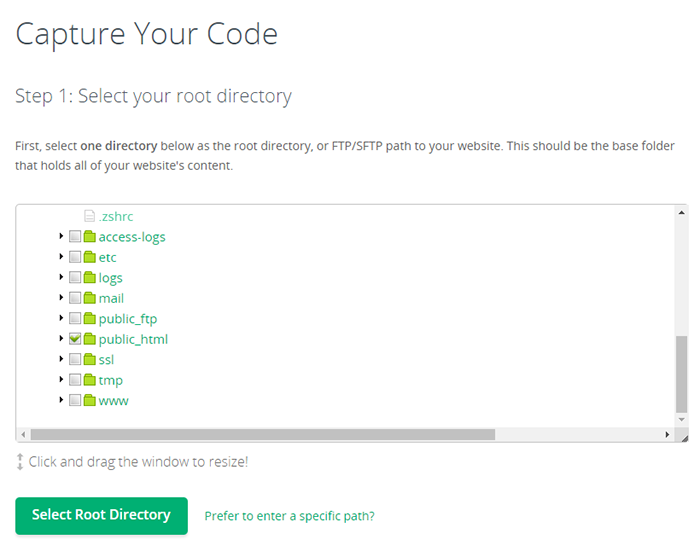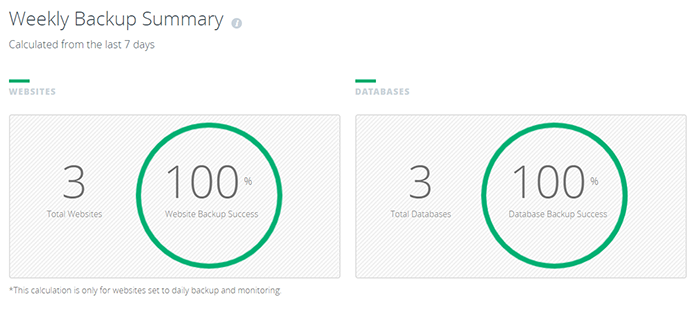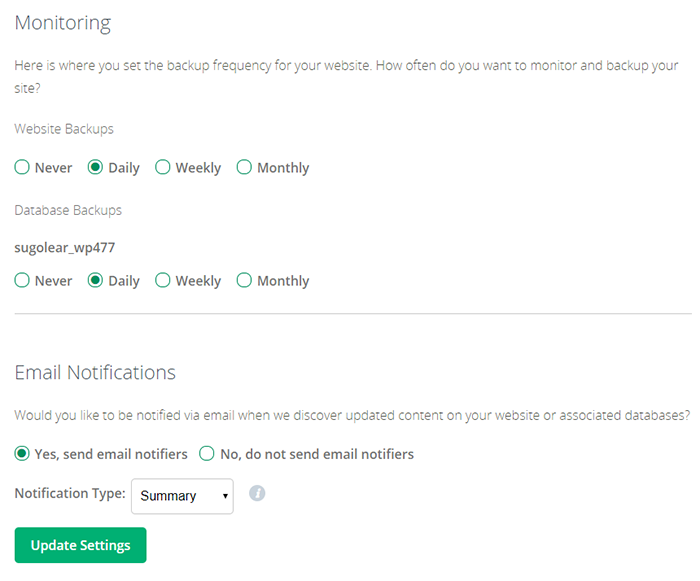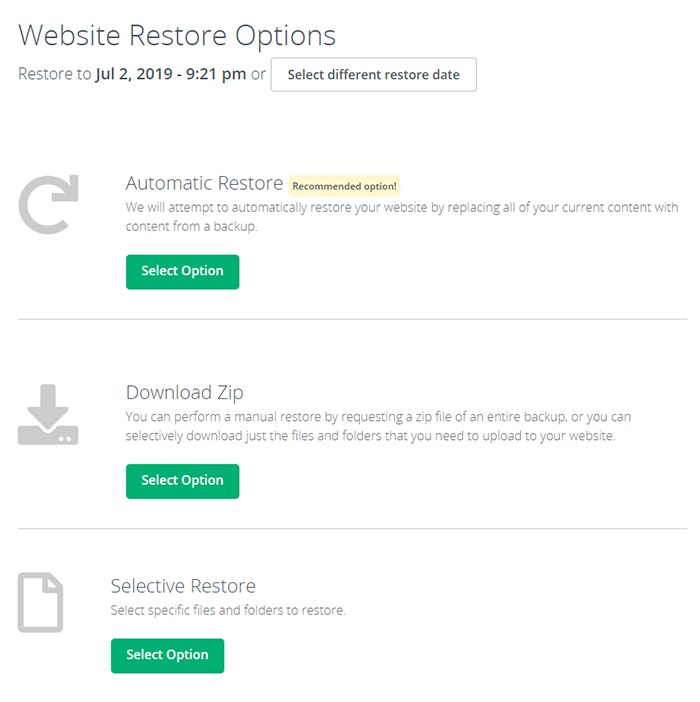

The silver bullet to solve almost any website problem. Wave your magic wand and undo any website hack, crash, malware infection, bad update, or goof-up. Install CodeGuard Backup now so you’re ready for the inevitable.
Automatic Backups
CodeGuard will backup your website files and database every day – automatically.
Website Monitoring
CodeGuard monitors your site for changes or malware and alerts you of any issues.
One-Click Restore
Have a problem with your site? Restore it back to working order in a single click!
Pricing plans for any site & budget!
From freelancers and small businesses to large firms and agencies, we have a plan for you.


Setting up and configuring CodeGuard is extremely straightforward – so much so that even non-technical website owners can do it. Users have a choice between a WordPress plugin or FTP/SFTP. With WordPress it’s as easy as installing the plugin and pasting a unique one-time key into the license field. From there, Code Guard will do the rest. With FTP/SFTP, it’s as simple as entering some login credentials and an IP address. (We strongly recommend using SFTP for security reasons).

Once you've entered the information for your website and its databases, CodeGuard goes to work backing them up. By default all backups last 90 days, though the frequency and length of storage can easily be adjusted to match your preference. Best of all, CodeGuard saves your storage space by only saving differential backups – versions with changes – so you never have to worry about wasting space on duplicates.

Anytime anything changes on your website, CodeGuard will know – and it will notify you, too. Whether it's keeping track of changes made between backups or scanning for malware and malicious code – CodeGuard provides you with the visibility and the tools to remediate the issue.

After everything has been backed up, restoring your website is as simple as a few mouse clicks. Simply select the backup you'd like and hit the “Restore” button. Within seconds your website will have reverted back its previous iteration. Users have the option to:
No matter what type of CMS you're running, CodeGuard can back it up and restore it for you.
CodeGuard works with WordPress, Joomla, Drupal, Magento and many more, provided the platform you're using meets the following criteria:
If your site doesn't meet the above criteria but uses WordPress, you can use the WordPress plugin without any need for FTP access or whitelisting IP addresses.
 |
 |
 |
 |
 |
WordPress |
Joomla |
Drupal |
MySQL |
Magento |
When it comes to securing important documents, the rule of thumb is 3-2-1, three copies, two on-site, one off-site. The same logic should apply to backups of your website, also! Most hosting providers only store their backups in the same place as the rest of your files. (And many hosting providers don't provide you with direct access to the backups.) And that can cause problems if you ever get locked out. CodeGuard stores copies of your website off-site, making them readily accessible anytime, from anywhere.
It doesn't take much to infect a website or take it offline. It can be an act of malice or something as simple as accidentally testing an update on the live site. If you're not backing up your website you've got to find the problem and fix it before you can restore your website. That causes downtime, costs money and can hurt your reputation. The cyber resilient solution is to back up your site regularly so you can instantly hop back to a safe, previous version of your site while you triage whatever problems may have crept up.
Backing up your website is best practice, but being able to identify specific elements of your site and restore them individually is a luxury – one that CodeGuard provides to all its users. Say you're updating your website and you mistakenly alter a critical file. You wouldn't want to have to restore the entire site to a previous version – you would lose all that work. CodeGuard solves that by allowing you to filter through your backup, find the individual file and just restore that.
One of the most important aspects of web development and just development in general is the ability to identify what's changed across different versions and iterations of their code. This is why Git was invented. CodeGuard leverages Git to help with version control. Each backup is hashed with SHA-1, allowing any tweaks or updates to be identified and labeled. Traditionally, this type of version control would involve an integration with Git or a similar alternative. It comes standard with CodeGuard – no extra work required.
If you're using WordPress, CodeGuard can easily be configured to handle all updates to WordPress and its plugins. Normally this would involve human intervention, some testing and then a push to the live site. With CodeGuard, updates happen on the fly and if anything breaks – there's a backup waiting that will restore your website to its previous version. This saves time, headaches and the amount of time you have to spend manually updating code.
CodeGuard ensures you'll never have to worry about the safety or integrity of your backups. All backups are stored securely with Amazon Web Services using 256-bit AES server-side encryption.